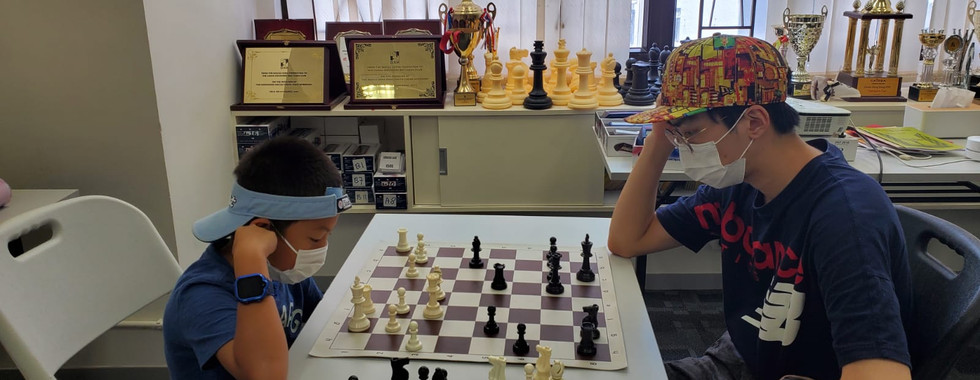Interview with the Summer Camp Coaches under COVID-19 Circumstances
When not so long ago Hong Kong managed to have zero or close to zero locally transmitted cases for several weeks in a row we saw our students, existing and new, coming back out, visiting our centers for face to face classroom group lessons, including our summer camps.
The dynamics of our face to face classes, especially for the younger players, with lots of interaction, games and highly qualified coaches who can read the situation in an instance, offer considerable advantages over online classes. Our camps got quickly fully booked (maximum 6 students under current circumstances).
Unfortunately, in the last couple of days the positive cases are in the hundred. Under such circumstances we need to continuously assess what our next move is. Nothing new to chess players, in a way. Below a short Q&A with some of our coaches, IM Marcos Llaneza, IM Matthew Tan and IA Alberto Muniz on how they experience teaching given the current status.
Impression of Camp 4 with coach Marcos
1. Alberto, you mostly do the afternoon classes. What is your biggest challenge?
"Three hours of chess is demanding, and the energy can be affected by whatever activity the children did in the morning. Sometimes we have a kid coming in the afternoon after 2 hours of football or swimming, which makes things more complicated. Luckily this week that was not the case for any of the participants!"
2. Matthew, in the camps that you run, would you say the atmosphere is different from other camps in the past, without Corona?
"Besides reducing the number of participants and the higher hygiene control, things are normal. Probably the snack time is a bit less of a "social moment", but the rest of classes and activities are very similar. Kids are used to these type of classes, especially after schools reopened for a while with similar measures."
3. Marcos, what do you think is the biggest advantage of the camp compared to regular group classes.
"Depends a lot on the levels, but I believe that a importance advantage is that children won't have "time to forget" what they learn. I mean, with one weekly hour, many times when they come for a class they might have forgotten what they did in the previous class. A camp gives a lot of time to learn/reinforce/practice."
4. Alberto, as Head Training & Operations, how do you approach or what kind of measures have you introduced during the Corona period?
"Since February, we have enforced temperature control for all participants in our activities, limit the number of people in the center (some other camps we had 6 kids per coach, but nowadays we won't go far than 6 students even if we could put a second coach, we don't allow accompanying persons to wait in the center, ...), very frequent sanitizing of tables, boards, pieces, ... Also we have to be a bit more on top of the children to ensure that they use the masks properly."
5. Matthew, to have children 5 days a week for 3 hours participating, how do you keep them engaged -any tips for parents?
"It's very important to do different activities. I normally take the camp like 3 different classes, with different contents. First hour could be a theory/practice class, second hour a joint analysis of some instructive games, third hour something more fun like an alternative chess game, ... An occasional video, an anecdote that serves as a break in a tough lesson, ..."
6. Marcos, what kind of preparation goes into teaching a chess camp?
"Each camp has different kids from different levels so each camp is different. Some times we don't know the kids in advance, but we have the sufficient training to know how to adapt to these cases. After 30 minutes we can band the kids with quite good accuracy, and adapt the content of our classes to each one of them."





























